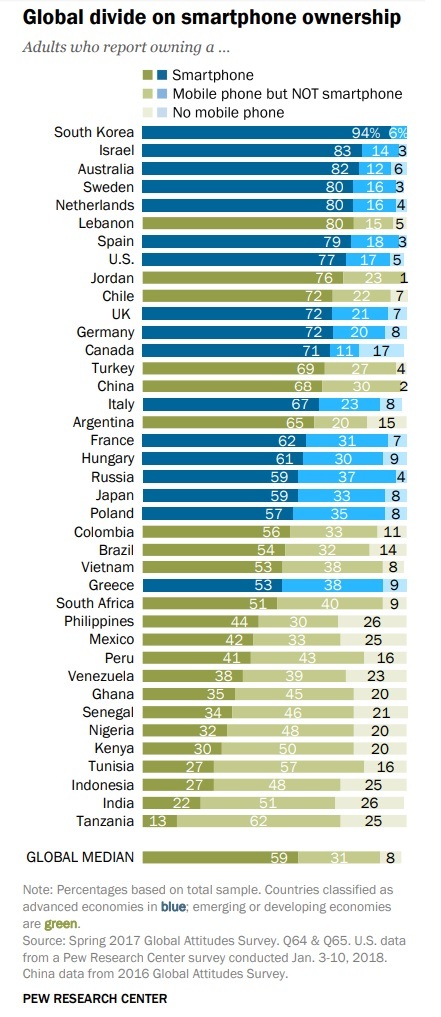
In just under a week, APRICOT 2019 will be held in Daejeon, South Korea. To give you a brief overview of the local history, challenges, and opportunities that the Internet provides to APRICOT’s host economy, we’re telling the stories of some of its local champions.
Read the IDSeries, NZSeries, LKSeries, VNSeries, TWSeries and NCSeries from past conferences.
South Korea’s first TCP/IP network began in May 1982, making it one of the earliest deployments in the world. It has a well-earned reputation as a leader in information and communication technology, with home-grown companies Samsung and LG well known worldwide with everything electronic, while the economy itself has been proclaimed by media to be ‘the most wired on Earth’.
The Broadband Convergence Network (2004), and later the Ultra-Broadband Convergence Network (2013), were pioneering infrastructure projects to overcome the digital divide between urban and rural areas, culminating in around 99% of the 19 million households in South Korea having Internet access. The economy also ranks first worldwide in terms of smartphone ownership and Internet usage — nine in ten Korean adults use the Internet and own a smartphone — and second for gigabit connectivity (almost 95% availability).
Over the course of 50 years, South Korea has sought to further advance its own infrastructure, and support the technology and services that it can provide its citizens. Recent examples of this include national strategies to develop core network infrastructure to enable 50% coverage of 10 Gb Internet — yes, 10 gigabit per second Internet — and 5G capabilities nationwide by 2022, as well as positioning to become a leader in Artificial Intelligence.
After seeing the success of Google Deepmind’s AlphaGo, South Korea is investing $860M in artificial intelligence:https://t.co/0YXdDwrR5F
— Monty Singh (@Monty_Singh) March 20, 2016
The government has played a key role in investing and cultivating an environment to enable such innovation with emphasis on developing a highly-educated and digitally-empowered society.
Maths and science have long been core school subjects, and in recent years the 3Rs have been replaced by the 4Cs — Critical thinking and problem-solving, Collaboration, Character, and Communication — to prepare students for the ‘4th Industrial Revolution’.
Perhaps the most stunning (and contentious) evidence of its pursuit for a digital society has been the rise of cyberculture (or Internet culture) in South Korea, particularly video streams and Internet communities. Popular pastimes, such as photography and shopping, and even daily activities, such as eating meals, have become entwined with these digital channels.
Further afield, the government has also taken an active role in helping develop the infrastructure and capacity of the rest of the Asia Pacific, as we’ll find out in this series.
The views expressed by the authors of this blog are their own and do not necessarily reflect the views of APNIC. Please note a Code of Conduct applies to this blog.


I wonder how is possible that a country with such broadband penetration is so badly performing in terms of IPv6 deployment. Doesn’t really make sense.
Government should take it seriously, sit down with ISPs and maybe enforce it if the ISPs aren’t reacting.
On the other site, working in my room at the Lotte hotel next to the next event venue, I don’t see this broadband performing at all …
A simple ping to google shows 40-50 ms. while at home, with just 100 Mbits, I get 4-5 ms. So some times, is much better to fix things before going for higher bandwidth.
To make it worst … the “official” government IPv6 web site from KISA (Korea Internet & Security Agency), https://www.vsix.kr, is not reachable at all, if you are dual-stacked and you don’t have 1.500 MTU (which is quite normal in broadband today, because PPPoE or similar encapsulations).
It fails to work correctly with IPv6, because they are filtering PMTUD, which I discovered when trying to reach the site (without any success), as shown as result of testing with scamper:
INFO: server-mss 1440, result: pmtud-fail
ERROR: https://www.vsix.kr don’t listen to PTB
So if you want to reach that site, either you disable IPv6 from your browser/computer or it will never fall-back to IPv4, so you can’t see the web site.
So it is really nice that you promote IPv6 without actually having tested correctly your own site from different remote locations/networks … sad.